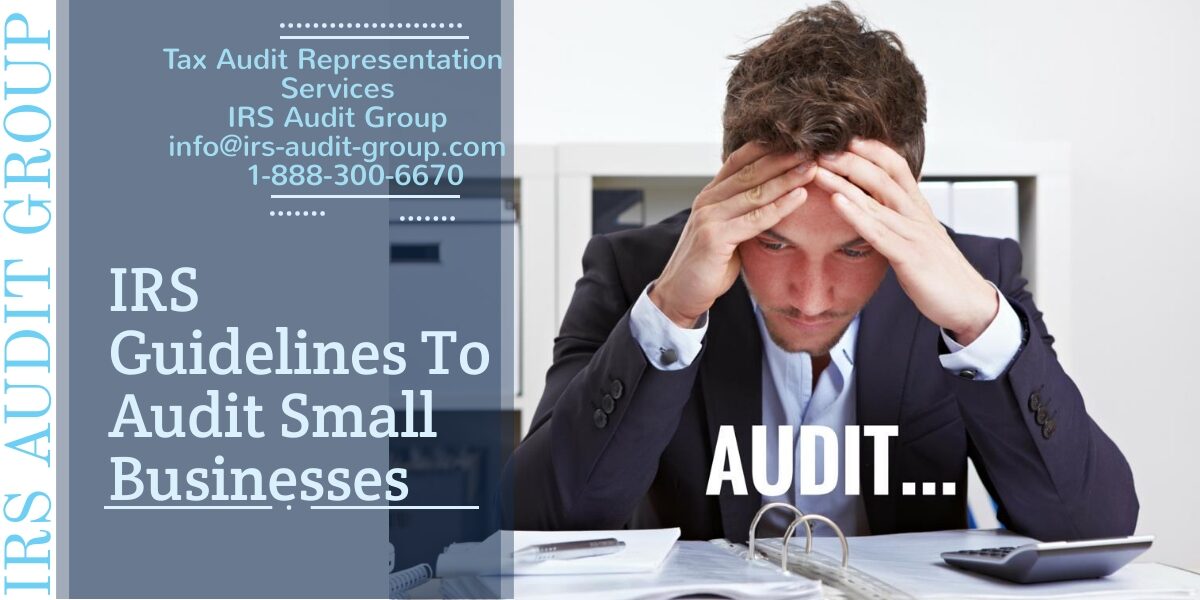Although JPMorgan Chase does not provide tax services, they do offer great insight on how small business owners can maintain taxes. Contact IRS Audit Group with questions and we’d be glad to help!
Small businesses are often so focused on generating revenue and keeping operations running smoothly throughout the year that tax-related concerns are procrastinated until tax day comes. Tax mistakes carry some pretty costly expenses, including penalties, a hefty tax bill, or even leaving money on the table in the form of untaken tax deductions.
Here are key tips from business tax experts:
1. Pay the correct amount of estimated taxes
Especially true for new solopreneurs and independent contractors in gig economy positions, just underestimating taxes and creating tax debt can cause significant issues later.
Justine Lackey, founder of Good Cents Bookkeeping Inc. says, “When people make their first foray into entrepreneurship, they do so rather blindly, and they fail to discuss the tax implications with their CPAs or bookkeepers. If it’s someone first rodeo, they may not pay estimated taxes at all, and they end up with a huge, and often unmanageable tax bill when they file their return.”
“A great way to make sure you can pay your taxes, is to squirrel away money,” Lackey advises. “A good ballpark is to save 25 percent all money earned in a separate tax account. Then, once each quarter, remit the money to federal and local tax agencies.”
2. Stay ahead of retirement account contributions
Crystal Stranger, EA, President of 1st Tax and the author of “The Small Business Tax Guide,” says that the limit to contributions in a Simplified Employee Pension Plan (SEP), is generally 25 percent of net income or up to $53,000 for the 2015 tax year, depending on your plan. She cautions that not being mindful of this and not staying on top of net income tallies “can easily lead to making excess contributions, subjecting the taxpayer to an excess contribution penalty in addition to the amounts not being deductible.” Furthermore, “if that excess contribution is not removed, you can be penalized for this every year until the amount is withdrawn.”
3. Document amounts paid to independent contractors
Businesses that outsource specific jobs to contractors are required to file 1099-MISC form with the IRS when payments of $600 or more have been made to the contractor throughout the year. Dave Du Val, VP of Customer Advocacy at TaxAudit.com warns that “without proof of payment these amounts are unlikely to be allowed in an audit.” In addition, “if the required 1099-MISC forms are not issued, penalties are likely.”
The flipside to this is worker misclassification. While classifying an employee as 1099 can have advantages to the business owner, they should be classified as a W-2 employee if the worker is an actual employee with set hours. Failure to classify workers correctly can leave the business liable for past taxes and penalties.
4. Keep great documentation
“Many small businesses, particularly small sole proprietors, keep poor records that end up costing them money in the long run. If good records aren’t kept, the IRS may disallow some deductions and credits, or worse, decide that the company isn’t a business, but actually a hobby. In that case, you end up with all of the tax with none of the deductions!” says Christopher Jarvis of Lone Wolf Financial Services.
Part of poor recordkeeping is often a result of commingling personal and business bank accounts. Jarvis advises, “The IRS is going to want to know how you differentiate between personal funds and business funds, and how you can separate business and personal expenses when it is all in the same account. Ideally, the company should have its own bank account, and all income resulting from work that business does gets deposited into the business bank account. Then the company writes a paycheck to the owner, who deposits it into his personal account.”
His suggestion to small businesses? “Invest in some inexpensive software or apps to help track your records, or pay a professional. And look to get items like bank statements sent to you or access them online instead of relying on a paper statement. The cost of a professional bookkeeper or accountant is often the best investment a company can make.”
Originally published here.
Telephone Number: (310) 498-7508
[email protected]









